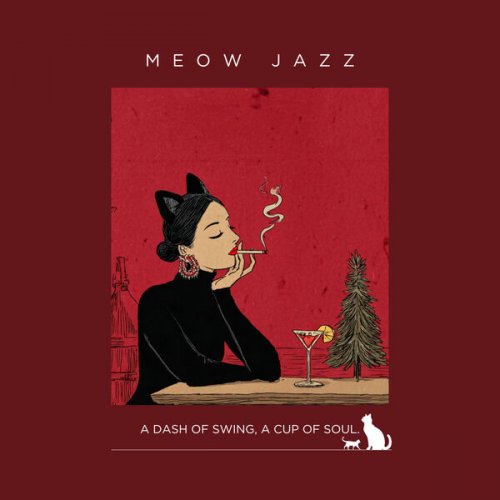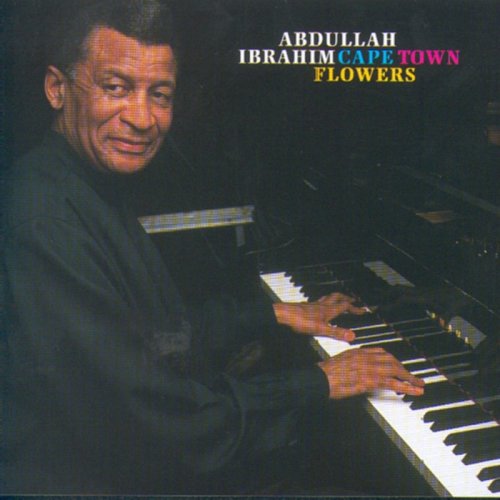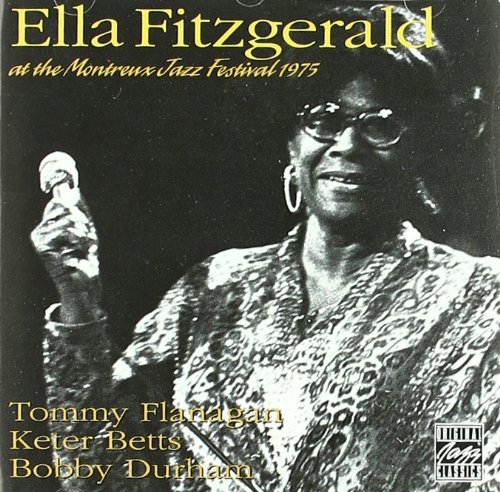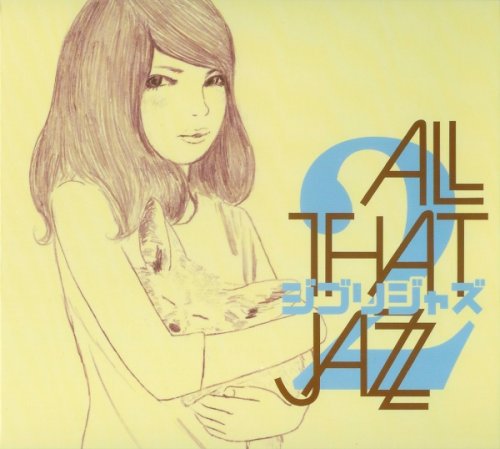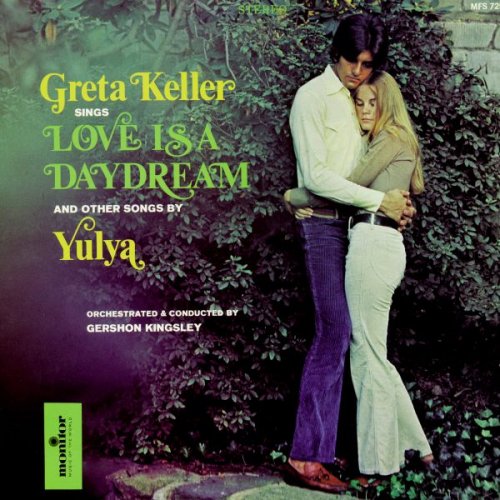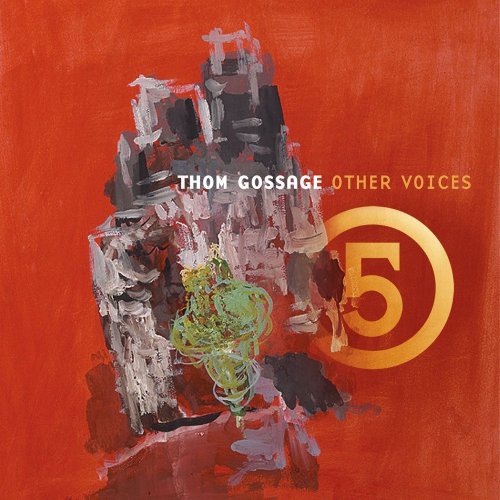Mikhail Svetlov, Pavlina Dokovska - Russian Songs (2011)
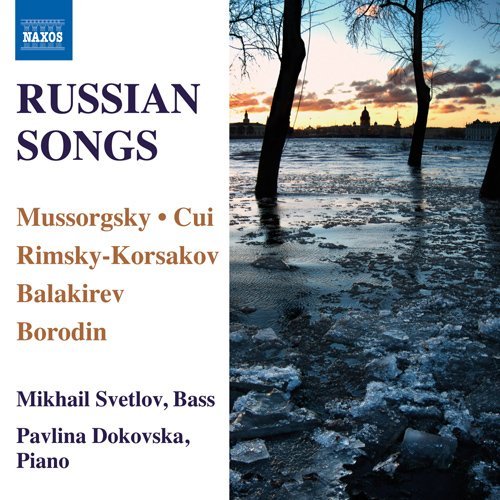
Artist: Mikhail Svetlov, Pavlina Dokovska
Title: Russian Songs
Year Of Release: 2011
Label: Naxos
Genre: Classical, Vocal
Quality: FLAC (tracks)
Total Time: 56:37
Total Size: 219 Mb
WebSite: Album Preview
Tracklist: Title: Russian Songs
Year Of Release: 2011
Label: Naxos
Genre: Classical, Vocal
Quality: FLAC (tracks)
Total Time: 56:37
Total Size: 219 Mb
WebSite: Album Preview
Mussorgsky, Modest Petrovich
1. Pesnya Mefistofelya v pogrebke Auerbakha
(Mephistopheless Song in Auerbachs Cellar),
Song of the Flea 00:03:06
2. Svetskaya skazochka: Kozyol (A Society
Tale: The Goat) 00:02:19
3. Ozornik (The Ragamuffin) 00:02:00
4. Seminarist (The Seminarist) 00:04:09
Pesni i plyaski smerti (Songs and Dances of Death)
5. No. 1. Lullaby 00:04:26
6. No. 2. Serenade 00:04:02
7. No. 3. Trepak Трепак 00:04:18
8. No. 4. The Field-Marshal 00:04:49
Cui, Cesar
25 Poems, Op. 57 (excerpts)
9. No. 17. The Statue of Czarskoye-Selo 00:01:03
10. No. 11. Ty I Vy (You and you) 00:01:08
Rimsky-Korsakov, Nikolay Andreyevich
11. 2 Songs, Op. 49: No. 2. Prorok (The Prophet) 00:04:11
12. 4 Songs, Op. 40: No. 3. O chyom v tishi nochyei (Of what I dream in the quiet night) 00:01:43
13. 4 Songs, Op. 3: No. 4. Na kholmakh Gruzii (On the hills of Georgia) 00:02:12
14. 5 Songs, Op. 51: No. 5. Nenastniy den potukh (The rainy day has waned) 00:04:35
Balakirev, Mily Alexeyevich
15. Barkarola (Barcarolle) 00:01:33
16. Slishu li golos tvoy (When I Hear thy Voice) 00:01:16
17. Kak naladili: durak (The Putting - Right) 00:01:21
18. Yevreyskaya melodiya (Hebrew melody) 00:02:10
Borodin, Alexander Porfiryevich
19. Chudniy sad (The Magic Garden) 00:02:09
20. Falshivaya nota (The False Note) 00:00:38
21. Iz slyoz moikh (From my Tears) 00:00:56
22. Pesnya tyomnogo lesa (Song of the Dark Forest) 00:02:06
Performers:
Mikhail Svetlov (bass)
Pavlina Dokovska (piano)
This disc brings together a selection of songs by the five members of the Mighty Handful, and serves as a useful and economical introduction to their Read more The Miserly Knight, Alexander Serov’s Judith (both on Harmonia Mundi), and Prokofiev’s Betrothal in a Monastery (BMG). He also appears in recordings of Rimsky-Korsakov’s May Night and Shostakovich’s unfinished opera The Gamblers (both on Capriccio), as well as a recording of Beethoven’s Missa Solemnis conducted by Antal Doráti (BIS). He has performed with major opera companies throughout the world. I have not been able to discover the reason for his name change, but it appears that at a certain point he emigrated to the U.S. You would learn little of this history from the Naxos notes. His performances on this disc are for the most part very good. He has a sonorous, well-rounded voice, evenly produced and pleasing in timbre, and he is able to scale it up or down as the material requires. He shows no strain or discomfort at either end of his range, although his tone sometimes betrays a slight unsteadiness in held notes. He tends to adopt rather brisk tempi by comparison with other interpreters, but nothing sounds hurried. He characterizes each song convincingly, dramatizing where the opportunity offers itself but not to excess. Pavlina Dokovska’s accompaniments are discreetly proficient, properly proportioned in relation to the voice. The recorded sound is for the most part clear and spacious, although there can sometimes be a reverberant halo on the voice in peaks, and I hear one instance of actual distortion. Texts are available via download (Russian transliteration and English translation only, no Cyrillic). I must also report that these texts occasionally deviate from the words actually sung, and I believe it is the singer who is accurate.
The most familiar items in this collection are those by Mussorgsky, especially the harrowing cycle Songs and Dances of Death , which is frequently encountered in versions orchestrated by Rimsky-Korsakov and Glazunov or Shostakovich. It is good to hear it as the composer left it, with a stark piano accompaniment that reinforces the bleakness and despair engendered by the omnipresence of death. Svetlov’s rendition is more straightforward than many, with less variation of tempo, but he effectively characterizes these mini-dramas of mortality while avoiding excessive histrionics. The four remaining Mussorgsky songs are excellent. In “Song of the Flea,” with a text translated from Goethe, Svetlov persuasively impersonates Mephistopheles. The biting satire of “The Goat,” “Mischief,” and “The Seminarist,” with clever texts by the composer, is fully realized in Svetlov’s rendition, again with a comparatively straightforward approach free from excessive mugging.
César Cui (1835–1918), the longest-lived but reputedly the least talented of the five, wrote several operas but is remembered today, if at all, chiefly as a composer of songs. This disc contains only two brief ones ( The Statue at Tsarskoye Selo, Thou and You ), each lasting a little over a minute. Both are pleasing and poignant, although not arresting. Svetlov delivers them effectively, switching with ease to a lyrical, cantante style of singing from the declamatory style required by the Mussorgsky items. Like both of Cui’s contributions, three of the four Rimsky-Korsakov songs are settings of poems by Alexander Pushkin. They are interesting and varied in character but not entirely what one would expect from the composer’s operas and closer to the style of Tchaikovsky. Mily Balakirev (1837–1910), the founder and mentor of the Mighty Handful, is also represented by four songs, of which Hebrew Melody , to a text derived from Lord Byron, is perhaps the most striking. They Keep Calling Me a Fool , a drunkard’s lament, is similar in vein to the satirical songs of Mussorgsky, although written long after the latter’s death. The best-known of Alexander Borodin’s handful of songs, For the Shores of the Distant Homeland , is not included on this disc. Of the four that are, Song of the Dark Forest , with text by the composer, is the most compelling.
I can recommend this disc to those interested in the Russian song repertoire, all the more so since many alternatives I might suggest are not readily available. For Songs and Dances of Death , the recordings of bass Anatoly Safiulin (Hyperion) and tenor Sergei Larin (Chandos), each of which duplicates some of the other items on the Svetlov disc, are currently out of print. Ewa Podle??s excellent recital of Mussorgsky, Tchaikovsky, and Rachmininoff songs (Forlane) is available in France and Germany and has just been reissued in Britain. Lina Mkrtchyan’s recording (Opus 111), about which Martin Anderson waxed ecstatic in Fanfare 23:1, is also available in Germany. Individual new and used copies of these recommended discs may be located through Amazon. I find Boris Christoff’s recording of Songs and Dances of Death (on EMI, in the orchestration by Rimsky-Korsakov and Glazunov) vocally superb but mannered and excessively histrionic. I have the same objection to Galina Vishnevskaya’s performance of the Shostakovich orchestration, also on EMI. For the latter version, I would suggest Dmitrii Hvorostovsky’s fine performance on Philips, accompanied by Valery Gergiev and the Kirov Orchestra.
The most familiar items in this collection are those by Mussorgsky, especially the harrowing cycle Songs and Dances of Death , which is frequently encountered in versions orchestrated by Rimsky-Korsakov and Glazunov or Shostakovich. It is good to hear it as the composer left it, with a stark piano accompaniment that reinforces the bleakness and despair engendered by the omnipresence of death. Svetlov’s rendition is more straightforward than many, with less variation of tempo, but he effectively characterizes these mini-dramas of mortality while avoiding excessive histrionics. The four remaining Mussorgsky songs are excellent. In “Song of the Flea,” with a text translated from Goethe, Svetlov persuasively impersonates Mephistopheles. The biting satire of “The Goat,” “Mischief,” and “The Seminarist,” with clever texts by the composer, is fully realized in Svetlov’s rendition, again with a comparatively straightforward approach free from excessive mugging.
César Cui (1835–1918), the longest-lived but reputedly the least talented of the five, wrote several operas but is remembered today, if at all, chiefly as a composer of songs. This disc contains only two brief ones ( The Statue at Tsarskoye Selo, Thou and You ), each lasting a little over a minute. Both are pleasing and poignant, although not arresting. Svetlov delivers them effectively, switching with ease to a lyrical, cantante style of singing from the declamatory style required by the Mussorgsky items. Like both of Cui’s contributions, three of the four Rimsky-Korsakov songs are settings of poems by Alexander Pushkin. They are interesting and varied in character but not entirely what one would expect from the composer’s operas and closer to the style of Tchaikovsky. Mily Balakirev (1837–1910), the founder and mentor of the Mighty Handful, is also represented by four songs, of which Hebrew Melody , to a text derived from Lord Byron, is perhaps the most striking. They Keep Calling Me a Fool , a drunkard’s lament, is similar in vein to the satirical songs of Mussorgsky, although written long after the latter’s death. The best-known of Alexander Borodin’s handful of songs, For the Shores of the Distant Homeland , is not included on this disc. Of the four that are, Song of the Dark Forest , with text by the composer, is the most compelling.
I can recommend this disc to those interested in the Russian song repertoire, all the more so since many alternatives I might suggest are not readily available. For Songs and Dances of Death , the recordings of bass Anatoly Safiulin (Hyperion) and tenor Sergei Larin (Chandos), each of which duplicates some of the other items on the Svetlov disc, are currently out of print. Ewa Podle??s excellent recital of Mussorgsky, Tchaikovsky, and Rachmininoff songs (Forlane) is available in France and Germany and has just been reissued in Britain. Lina Mkrtchyan’s recording (Opus 111), about which Martin Anderson waxed ecstatic in Fanfare 23:1, is also available in Germany. Individual new and used copies of these recommended discs may be located through Amazon. I find Boris Christoff’s recording of Songs and Dances of Death (on EMI, in the orchestration by Rimsky-Korsakov and Glazunov) vocally superb but mannered and excessively histrionic. I have the same objection to Galina Vishnevskaya’s performance of the Shostakovich orchestration, also on EMI. For the latter version, I would suggest Dmitrii Hvorostovsky’s fine performance on Philips, accompanied by Valery Gergiev and the Kirov Orchestra.
![Roland Kirk - We Free Kings (1961/2026) [Hi-Res] Roland Kirk - We Free Kings (1961/2026) [Hi-Res]](https://www.dibpic.com/uploads/posts/2026-01/1769717249_cover.jpg)
